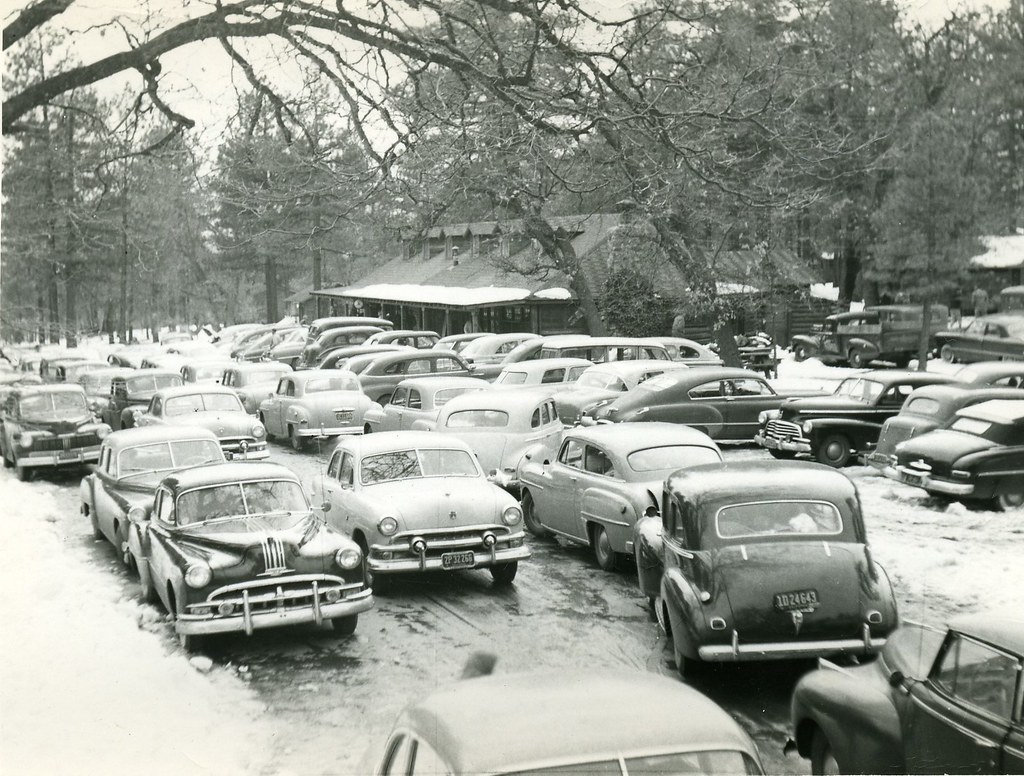
Vehicle safety recalls are a cornerstone of consumer protection, ensuring dangerous defects are rectified promptly and without cost to the owner. When a manufacturer or NHTSA identifies a safety risk, the expectation is simple: dealerships perform necessary repairs free of charge, as federally mandated. This system exists to safeguard drivers and passengers from potential harm.
However, the reality of recall repairs can often be far more intricate than a free fix. Many consumers find themselves in a challenging position when a dealership declines to honor a recall repair. This leaves vehicle owners, like the Northern Kentucky family with a 2008 Chevy Cobalt, facing a dangerous car and a safety concern that appears to have no immediate solution.
Understanding the specific circumstances under which a dealership can, or cannot, legally refuse a recall repair is paramount for every car owner. This in-depth look aims to demystify these scenarios, providing clarity on federal regulations, manufacturer policies, and practical challenges. We will explore key reasons why a mandated fix might be refused, starting with common immediate obstacles encountered at the service bay.
1. **The Branded Title Dilemma: Why Flood and Salvage Cars Face Recall Roadblocks**One significant and frustrating reason a dealership might refuse a recall repair involves a vehicle’s title status, especially if it carries a “branded title” such as flood or salvage. This was precisely the challenge faced by Ryan VanHook with her daughter’s 2008 Chevy Cobalt, as the GM dealer refused the fix due to its water damage branded title. A flood title, similar to salvage, indicates the car was totaled and rebuilt, often after hurricane damage.
While the NHTSA states a salvage title is not a valid reason to refuse recall coverage unless the car is undriveable, dealerships often view these vehicles cautiously. Online forums highlight that dealers frequently deny recall repairs on salvage cars due to liability concerns. They fear potential legal repercussions if a previously damaged car, after their repair, is involved in a future crash.
For consumers like the VanHooks, this often means being stuck with a dangerous vehicle. Paying for the repair at an independent shop might cost nearly as much as the car’s worth, making it an uneconomical choice. This situation transforms a federally mandated free repair into a significant financial burden.
The inherent risks of salvage and flood-titled cars, such as bad welds, frame rot, and other serious safety issues, further complicate matters. These underlying problems can sometimes directly interfere with performing the recall work safely. This provides an additional, legitimate reason for a dealership to decline service.

2. **The 15-Year Rule: When Manufacturer’s Free Repair Obligation Expires**While vehicle recalls generally have no expiration date, the manufacturer’s legal obligation to provide a *free* remedy does. This often-overlooked detail can surprise owners of older vehicles seeking recall repairs. The manufacturer’s legal duty to offer a free fix for a safety-related defect expires 15 calendar years after the vehicle’s original sale date.
This 15-year limit is a crucial aspect of the National Traffic and Motor Vehicle Safety Act. If your car is older than this period, the manufacturer is no longer legally bound to cover the repair cost. The defect doesn’t disappear, but financial responsibility shifts to the vehicle owner, impacting budgetary considerations.
Some manufacturers may voluntarily offer free repairs for older vehicles, perhaps for goodwill or to maintain customer loyalty. However, this is not a guaranteed service, making proactive checks essential for cars nearing this age threshold.
Furthermore, parts for discontinued models can become scarce. Even if the recall has no “expiration date,” scheduling repairs becomes challenging if the manufacturer goes out of business or discontinues necessary components. This underscores the urgency of addressing recalls promptly, for both safety and practical repair availability.
Therefore, while a recall remains valid for the vehicle’s lifetime concerning the safety defect, the period for a free repair is finite. Understanding this 15-year window helps owners anticipate costs and make informed decisions about their vehicle’s safety and maintenance.

3. **Unauthorized Service Centers: The Limits of Dealership Recall Duties**When a vehicle has a safety recall, the primary channel for repairs is typically the manufacturer’s network of franchised dealerships. These dealerships are legally obligated to perform necessary repairs without charge. However, a fundamental reason for refusal is if the dealership is not an authorized service center for that specific vehicle’s brand.
This point, while seemingly obvious, is a common source of confusion. A Ford dealership, for example, has no obligation or specialized resources to perform a recall repair on a Chevrolet vehicle. The duty for a free repair rests exclusively with dealers franchised by the specific manufacturer that issued the recall. It’s a matter of brand-specific authorization and operational capacity.
Consumers should always ensure they approach a dealership representing their vehicle’s make. Attempting to get a Honda recall fixed at a Nissan dealer will inevitably result in a refusal. This isn’t malicious, but a logistical reality based on manufacturer agreements and specialized repair protocols. Each brand operates within its established service network.
The National Highway Traffic Safety Administration (NHTSA) confirms that authorized dealerships for the specific brand must perform the repair. This applies regardless of where the vehicle was originally purchased, emphasizing the obligation is tied to the manufacturer’s network, identified by the Vehicle Identification Number (VIN).
Therefore, before visiting any service center, confirm it is an authorized dealer for your vehicle’s brand. A quick call or website check can clarify this, saving time and ensuring you are directed to the correct facility for your recall repair needs.
4. **Physical Damage Interference: When Vehicle Condition Halts a Fix**Beyond branded titles, the overall physical condition of a vehicle can also serve as a valid reason for a dealership to refuse a recall repair. If a vehicle has sustained significant damage or undergone heavy modification, a dealership may decline service if the damage or alteration directly interferes with their ability to perform the recall work safely and effectively. This considers technician safety and repair integrity.
Consider a car involved in a major accident, with structural damage around a recalled component. Attempting a recall fix in such compromised conditions could endanger technicians or result in an incomplete repair. In these instances, refusal isn’t an evasion of responsibility, but a recognition of unsafe working conditions or an impediment to a proper repair.
Similarly, extensive aftermarket modifications can complicate recall repairs. If a vehicle’s original design is substantially altered, especially in areas related to the recall, standard repair procedures may no longer be applicable or safe. The dealership’s responsibility is to fix the *original* defect according to manufacturer specifications, which becomes difficult or impossible if those specifications have been fundamentally changed.
It’s crucial to differentiate this from a salvage title alone. As NHTSA clarifies, a salvage title doesn’t automatically disqualify a vehicle if the recalled part is unaffected. The key factor is whether existing damage or modification *directly impacts* the safe and correct completion of the specific recall repair. This requires a case-by-case assessment of the damage and the recall itself.
Consumers should anticipate this possibility if their vehicle has a history of extensive damage or modifications. While the recall applies to the defect, the car’s physical state must allow for a proper and safe execution of the repair. Addressing underlying damage or reversing modifications might be necessary before the recall service can proceed.

5. **Regional Recalls: When Your State Doesn’t Qualify for a Free Repair**A particularly confusing reason for recall refusal, exemplified by the Chevy Cobalt case, occurs when a recall does not apply to all states. This geographical limitation can leave vehicle owners in frustrating limbo. They discover their car has a known safety defect but are ineligible for a free repair based on its original sales location or current residence. Ryan VanHook’s Cobalt faced this, as its fuel pump seal recall didn’t apply to all states, and Mississippi, where it was likely sold, wasn’t on the qualified list.
This scenario is common with “rust recalls.” Often, only states north of a certain line, like Kentucky and Virginia, qualify for these repairs. Southern cars with the exact same rust problem may not. The rationale behind regional limits often relates to environmental factors, such as road salt use in colder climates, which accelerates corrosion and leads to specific defects less prevalent elsewhere.
The NHTSA is investigating whether such geographically limited recalls, including the Cobalt fuel pump issue, should be expanded. Currently, fewer than half of all states might qualify for a free repair on specific issues. This creates a significant disparity in consumer protection, where the same defect is a free fix for one owner but a substantial out-of-pocket expense for another, solely due to location.
For consumers, this highlights the need to understand recall specifics. Simply knowing a recall exists isn’t enough; one must verify if their vehicle, by VIN and original sales location, falls within the designated scope. Official recall notices and the NHTSA website provide this crucial information.
Facing a regional recall limitation can be disheartening, acknowledging a safety flaw but being denied the standard remedy due to a geographical boundary. This situation underscores the complexities of recall administration and the importance of owners thoroughly investigating the applicability of any safety recall to their specific circumstances.

6. **The “Buy More Services” Trap: Improper Conditions for Recall Repairs**One of the clearest instances of an improper reason for recall service refusal is when a dealership tries to leverage the mandatory recall repair for additional sales. A dealership cannot legally require a vehicle owner to purchase other services or repairs as a condition for completing the free recall work. This directly violates federal mandates regarding safety recalls.
The recall repair is a standalone obligation. The manufacturer must remedy the safety defect at no cost, and this duty is not contingent upon the owner agreeing to any other maintenance. Dealership service advisors might suggest extra work, such as an oil change or tire rotation, while your car is in for a recall. However, agreeing to these services can never be a prerequisite for the recall repair.
Consumers have the absolute right to decline any additional, non-recall-related maintenance. While these recommendations might be genuinely beneficial for the vehicle’s health, they must remain optional. Any attempt to link the free recall repair to other purchases should be reported immediately, as it constitutes an improper refusal.
This rule protects consumers from coercion into unnecessary spending when addressing a safety issue. Federal law is clear: the safety defect must be remedied free of charge, with no strings attached. Consumers should be vigilant and empowered to assert their rights in such situations.
If a dealership attempts this tactic, politely but firmly state you are only there for the recall repair. If they insist, document the interaction, including names and dates. This ensures the recall process remains focused on safety and consumer protection, free from unfair sales practices.
7. **New Owner, Same Rights: Recall Obligations Follow the Vehicle, Not the Purchaser**A common misconception leading to improper recall refusals is the belief that recall obligations only apply to the original vehicle owner. This is unequivocally false and an invalid reason for a dealership to refuse service. The recall obligation is tied directly to the vehicle itself, identified by its unique Vehicle Identification Number (VIN), not to the person who originally purchased it.
Whether you are the first, fifth, or simply acquired the vehicle through a private sale or auction, your rights to a free recall repair remain intact. The safety defect inherent in the vehicle’s design or manufacturing does not disappear or become less critical with a change of ownership. The federal mandate is to remedy the defect in *all* affected vehicles.
Dealerships sometimes use this as a denial reason, particularly with older used cars, perhaps assuming the current owner is less informed. However, the law is clear: the manufacturer’s duty to provide a free remedy applies to any owner of an affected vehicle, provided it falls within the 15-year limit from the original sale date and other legitimate refusal criteria are not met.
This principle is crucial for the used car market, ensuring safety concerns are addressed regardless of transaction history, thus contributing to overall road safety. Consumers purchasing used vehicles should always check for open recalls using the VIN on the NHTSA website (NHTSA.gov) or the manufacturer’s tool.
If a dealership denies a recall repair based on you not being the original owner, calmly remind them the recall is tied to the VIN. If they persist, document the interaction thoroughly. This is a clear improper refusal, warranting escalation to the manufacturer and consumer protection agencies, as your rights are being violated.
Navigating the landscape of vehicle recalls can be a complex journey for consumers, often fraught with unexpected obstacles beyond the initial refusal of service. While federal law mandates free repairs for safety defects, understanding the full scope of your rights, potential recourse, and the broader implications of unaddressed issues is crucial. This second section delves into seven more critical aspects, from the severe consequences of ignoring recall notices to advanced options for consumer advocacy and the enduring risks associated with certain vehicle types.

8. **The Peril of Procrastination: The Severe Consequences of Ignoring Recall Notices**Many vehicle owners might be tempted to put off a recall repair, especially if the defect doesn’t seem immediately critical or if they encounter resistance from dealerships. However, ignoring a recall notice, even for what seems like a minor issue, can lead to severe and far-reaching consequences that extend far beyond the immediate safety risk. These include financial repercussions, potential insurance complications, and, most importantly, a heightened risk to personal safety.
From an insurance perspective, neglecting a recall could prove costly. If a vehicle owner is involved in a collision after consciously ignoring a recall notice related to the cause of the accident, their insurance company could deny the claim outright. Furthermore, not resolving recalls affects the overall safety profile of a vehicle, which insurance providers consider when determining rates. This means that unresolved safety issues could potentially lead to an increase in car insurance premiums, making proactive repair a financially sound decision.
Beyond financial and insurance implications, the most critical consequence of ignoring a recall is the inherent safety risk. A safety defect, by definition, has the potential to cause accidents, injuries, or even fatalities. Continuing to operate a vehicle with an unaddressed recall means knowingly exposing oneself and others to these dangers. The scenario faced by the VanHook family, with a gasoline leak from a faulty fuel pump seal, vividly illustrates how an ignored defect can quickly escalate into a serious hazard, potentially leading to fires or other catastrophic failures.
Moreover, delaying or avoiding a recall repair can lead to a significant financial burden down the line. As noted in the case of the VanHook’s Chevy Cobalt, paying for the repair at an independent shop might cost nearly as much as the car’s worth, making it an uneconomical choice for older vehicles. What begins as a free, federally mandated repair can transform into a substantial out-of-pocket expense if the manufacturer’s free repair obligation expires after 15 years, or if the defect causes secondary damage that complicates the repair.
9. **Beyond the Service Bay: Leveraging NHTSA to Address Unresolved Recalls**When a dealership improperly refuses a recall repair, or when a manufacturer appears slow to act on a known defect, consumers have a powerful ally in the National Highway Traffic Safety Administration (NHTSA). The NHTSA is the government agency tasked with overseeing automotive quality and safety issues, and it serves as a critical resource for vehicle owners facing unaddressed safety concerns. Filing a complaint with NHTSA.gov is a vital step for any consumer who believes their safety rights are being overlooked.
NHTSA meticulously reviews every complaint it receives from the public. While there isn’t a fixed criterion for initiating a full investigation, the agency operates on a case-by-case basis. Critically, the volume of complaints about a specific issue significantly influences the likelihood of an investigation. A consistent pattern of complaints regarding a particular defect provides the NHTSA with the data and impetus needed to delve deeper, potentially uncovering widespread safety problems that demand attention from manufacturers.
Should the NHTSA’s investigation reveal that a vehicle fails to meet minimum federal safety standards or that a significant safety flaw is related to its manufacturing, the agency possesses the authority to compel the car company to issue a recall. This governmental oversight ensures that manufacturers cannot simply ignore known defects indefinitely. The fear of criminal charges, hefty fines, and widespread negative publicity serves as a powerful deterrent, often prompting manufacturers to issue voluntary recalls before being forced by the government.
Therefore, reporting issues to NHTSA is not merely an act of personal recourse; it is a collective action that contributes to broader automotive safety. By documenting and submitting complaints, individual consumers empower the NHTSA to hold manufacturers accountable, ensuring that safety defects are addressed for all affected vehicles. This process underscores the critical role of consumer vigilance in maintaining the integrity of vehicle safety standards across the nation.

10. **When Recalls Fall Short: Understanding Lemon Law Claims**In some particularly frustrating scenarios, even after a recall has been issued and attempted, the underlying defect may persist. When a manufacturer fails to remedy a safety problem within a reasonable number of repair attempts, a recall situation can escalate into a “lemon law” claim. These state-specific laws offer a crucial layer of protection for consumers who have purchased or leased a new vehicle with persistent, unfixable defects that substantially impair its use, value, or safety.
While the specifics of lemon laws vary by state, they generally provide remedies when a vehicle defect remains after multiple repair attempts by the manufacturer or its authorized dealerships. This typically means three or four attempts to fix the same problem, or if the vehicle has been out of service for a cumulative total of 30 days or more for repairs. The core principle is that consumers should not be stuck with a vehicle that cannot be reliably and safely operated, especially when the defect is linked to a safety recall.
For a safety recall to transition into a lemon law claim, the key is the manufacturer’s inability to effectively resolve the issue. If you have diligently taken your car in for repairs related to a recall, and the problem continues to recur despite these efforts, you may have grounds for a lemon law claim. This gives consumers leverage beyond simply waiting for another recall remedy, offering potential solutions such as a vehicle buyback, a replacement vehicle, or monetary compensation for the diminished value and inconvenience.
Initiating a lemon law claim usually involves formal notification to the manufacturer, often requiring the assistance of a legal professional specializing in consumer protection. It represents a more advanced and intensive form of recourse compared to simply reporting an issue to NHTSA or escalating to the manufacturer directly. For consumers who have exhausted conventional recall repair avenues, understanding the provisions of their state’s lemon law can provide a pathway to a definitive resolution for their persistent vehicle safety concerns.
11. **The Long Arm of Accountability: Manufacturer’s Responsibility for Defects**Behind every recall notice is a manufacturer’s journey from initial awareness of a potential defect to the decision of whether to issue a voluntary recall or face government intervention. Auto manufacturers carry a significant responsibility to ensure the safety of their products, and how they handle quality control problems can drastically impact their reputation, financial standing, and legal vulnerability. The system is designed to hold them accountable, whether they choose to act proactively or are compelled to by regulatory bodies.
Manufacturers often become aware of quality control problems through their dealership service centers. When numerous customers bring in vehicles exhibiting similar mysterious symptoms, a pattern begins to emerge. This data then prompts the car company to investigate the issue, determine the root cause, and formulate a fix. At this juncture, they face a critical choice: issue a voluntary recall, alerting affected owners to a free repair, or gamble on the problem “just going away,” which, as history shows, rarely happens.
Voluntary recalls are generally in the manufacturer’s best interest. By proactively identifying and addressing defects, companies can demonstrate a commitment to safety, mitigate potential harm, and often avoid more severe penalties. However, if a manufacturer attempts to conceal flaws or is dishonest about recall-worthy safety issues, the government, through agencies like the NHTSA, will step in. If the NHTSA discovers that a car does not meet federal safety standards, it has the power to force a recall, transforming a voluntary choice into a mandatory obligation.
The consequences for manufacturers who fail in their duty are substantial. Beyond the operational costs of a recall itself, companies can face hefty fines, criminal charges, and severe damage to their brand reputation. The unflattering headlines and public distrust that follow a forced recall, especially one linked to injuries or deaths, can have a lasting negative impact on market performance and consumer loyalty. This robust framework of accountability ensures that while manufacturers may initially try to ignore defects, the system is ultimately designed to compel them to prioritize public safety.
12. **The Hidden Dangers: Re-evaluating the Risks of Salvage and Flood-Titled Vehicles**While the first section touched upon branded titles as a reason for recall repair refusal, it’s crucial for consumers to understand the broader and often profound inherent risks associated with purchasing salvage or flood-titled vehicles. These vehicles, often sold at seemingly attractive lower prices, can harbor a multitude of hidden dangers that extend far beyond the challenge of getting a recall fixed, compromising long-term safety and financial viability. The adage “you get what you pay for” is particularly relevant here.
Salvage titles typically indicate a car has been declared a total loss by an insurance company, often due to significant collision damage, theft, or vandalism, and then rebuilt. The context explicitly warns that salvage cars can have “bad welds and other safety issues.” These underlying structural compromises, which may not be immediately visible, can severely impact a vehicle’s crashworthiness and overall structural integrity. A car that has been rebuilt might not perform as intended in a subsequent accident, jeopardizing the safety of its occupants.
Flood-damaged vehicles, like the 2008 Chevy Cobalt in the VanHook’s situation, pose a unique set of hazards. A flood title means the car was submerged, often during events like hurricane flooding. The context highlights that flood-damaged cars can suffer from “frame rot and other serious rust issues.” Beyond visible corrosion, floodwaters can wreak havoc on a vehicle’s electrical systems, often leading to intermittent failures of critical components, including airbags, anti-lock brakes, and engine management systems, which can manifest long after the water has receded. These unseen issues are notoriously difficult and expensive to diagnose and repair.
For consumers, the allure of a low purchase price for a branded-title vehicle often overshadows the substantial risks involved. The cost to repair these hidden defects, if they can even be fixed reliably, can quickly outweigh any initial savings, as the VanHook family discovered with the estimated $1,000 repair cost for their Cobalt’s fuel pump leak. Ultimately, the inherent dangers of these vehicles, whether from compromised structures, persistent rust, or unreliable electronics, present a compelling reason to think twice before making such a purchase, regardless of how cheap the vehicle may appear.
13. **Navigating Delays: When Parts Aren’t Available and Solutions Take Time**Even when a recall is acknowledged and a dealership is willing to perform the repair, consumers can still face frustration due to delays. A temporary lack of necessary parts is a common and legitimate reason for a recall repair to be postponed, but it is critical to understand that this is a delay, not a permanent refusal. Manufacturers and dealerships are still obligated to remedy the defect within a reasonable timeframe, even if procuring components takes longer than anticipated.
Manufacturers typically have a window to provide a solution for a recalled issue. The context states that “Typically, the manufacturer has 60 days from the date of the recall notification to provide a solution for the issue.” This period allows them to ramp up production of new or redesigned parts and distribute them to their service network. However, for complex issues, widespread recalls, or older, discontinued models where parts might be scarce, this timeframe can be challenging to meet, leading to extended waiting periods for vehicle owners.
During such delays, effective communication between the dealership, the manufacturer, and the vehicle owner becomes paramount. While the wait for parts can be inconvenient, it is essential for consumers to stay informed about the status of their repair and to ensure that they are on a waiting list for the necessary components. Dealerships are expected to order the required components and schedule the repair for a future date, maintaining the manufacturer’s responsibility to eventually fix the defect free of charge.
Should the delays become excessive, or if a dealership appears unresponsive, consumers should not hesitate to escalate their concerns. Contacting the manufacturer directly can often provide more specific information regarding parts availability and expected repair timelines. While delays are an unavoidable part of some recall processes, the underlying obligation to provide a free and effective remedy for a safety defect remains firmly in place for the lifetime of the recall, distinct from the 15-year limit on free repairs. Patience, coupled with persistent follow-up, is key in these situations.

14. **Taking Action: Advanced Recourse for Improper Recall Refusals**When a dealership improperly refuses a recall repair, consumers are not without recourse. While initial steps may involve contacting another dealer or the manufacturer directly, and filing a complaint with NHTSA, there are more advanced actions one can take to assert their rights and ensure compliance with federal law. These steps are particularly relevant when a clear improper refusal, such as demanding additional purchases or denying service to a subsequent owner, has occurred.
Beyond federal agencies, consumers can report the issue to relevant state-level consumer protection agencies. For instance, the context suggests reaching out to agencies like the California Attorney General’s office or the Department of Consumer Affairs. These bodies often have the authority to mediate situations between consumers and businesses, investigate complaints, and even take further action against dealerships found to be violating consumer protection laws. Documenting all interactions, including dates, names, and specific statements made, is crucial for building a strong case.
In persistent cases where mediation fails or the improper refusal constitutes a significant breach of consumer rights, legal action may become a viable option. While pursuing a lawsuit is a serious step, the context notes that if the court allows, a recall itself “may be able to be used as evidence of the defect.” This can be a powerful tool in proving a manufacturer’s or dealership’s negligence. However, consumers should be aware that manufacturers might attempt to shift blame, claiming the injured party knew or should have known of the defect, so legal counsel is advisable.
The “Right To Recall (RTR)” and other consumer protection laws grant specific rights, and if these are violated, employees (or in broader consumer contexts, individuals) may be entitled to damages. This underscores the importance of understanding one’s recall rights and pursuing them vigorously. By taking these advanced recourse options, consumers not only protect their own interests but also contribute to a stronger enforcement of safety standards, holding manufacturers and dealerships accountable for their federal obligations.
Facing an unaddressed vehicle recall can be a daunting experience, transforming a simple safety fix into a complex battle. However, as this exploration has revealed, vehicle owners possess a range of powerful tools and avenues for recourse. From leveraging the oversight of NHTSA and understanding the protections offered by lemon laws, to holding manufacturers accountable and pursuing advanced legal steps for improper refusals, consumers are not alone in this fight. The journey to ensure vehicle safety is a shared responsibility, with informed owners playing a vital role in upholding the standards mandated by law. Staying vigilant, documenting every step, and advocating for your rights are paramount in navigating the often-intricate world behind the recalls.










